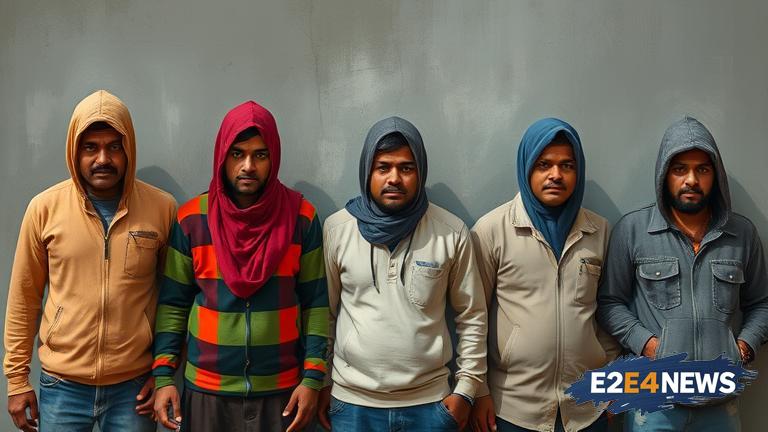A significant development has unfolded in the realm of immigration enforcement in India, as the Delhi police have successfully detained five individuals from Bangladesh who were found to be residing in the country without the requisite legal permissions. This operation underscores the ongoing efforts by Indian authorities to curb the issue of illegal immigration, which has been a subject of concern for the government and citizens alike. The detained individuals, all hailing from Bangladesh, were discovered in various parts of Delhi, highlighting the widespread nature of this issue. According to police reports, these individuals had managed to evade detection for a considerable period, raising questions about the efficacy of current immigration monitoring systems. The arrests were made possible through a combination of intelligence gathering and coordinated raids, demonstrating the proactive approach being adopted by law enforcement agencies. The issue of illegal immigration is complex and multifaceted, involving not just the entry of undocumented individuals but also their integration into local economies and societies. In many cases, such immigrants are exploited by unscrupulous employers, further complicating the situation. The Indian government has been grappling with this challenge, seeking to balance the need to protect its borders with the humanitarian aspects of dealing with undocumented migrants. The detention of these Bangladeshi nationals is part of a broader strategy to enhance border security and enforce immigration laws more rigorously. It also reflects the growing cooperation between different law enforcement agencies, both within India and internationally, to tackle issues that transcend national boundaries. The operation has been welcomed by many as a step in the right direction, though it also raises questions about the treatment and potential deportation of those detained. Human rights organizations have emphasized the need for any actions taken to be in accordance with international law and to ensure the dignity and rights of the individuals involved. The economic implications of illegal immigration are also significant, with potential impacts on job markets and public services. As India continues to grow economically, it is likely to face increased migration pressures, making the development of effective and humane immigration policies a pressing necessity. The government has been working on reforming its immigration laws and enhancing its border control mechanisms, but the scale and complexity of the issue mean that solutions will not be easy to implement. Meanwhile, the detained individuals are expected to face legal proceedings, which could result in their deportation back to Bangladesh. This case serves as a reminder of the global nature of migration issues and the need for countries to work together to address these challenges. It also highlights the importance of public awareness and cooperation in helping to prevent illegal immigration. As the situation unfolds, it will be important to monitor how the Indian government chooses to proceed, balancing the need for security with the imperative to protect human rights. The international community will also be watching closely, given the potential implications for regional stability and global migration patterns. In conclusion, the detention of five Bangladeshi illegal immigrants in Delhi represents a significant moment in India’s ongoing efforts to tackle the complex issue of illegal immigration. It underscores the challenges faced by governments worldwide in managing migration flows and the need for comprehensive, compassionate, and effective policies to address this critical issue.





